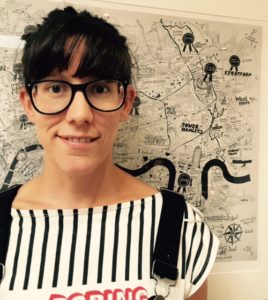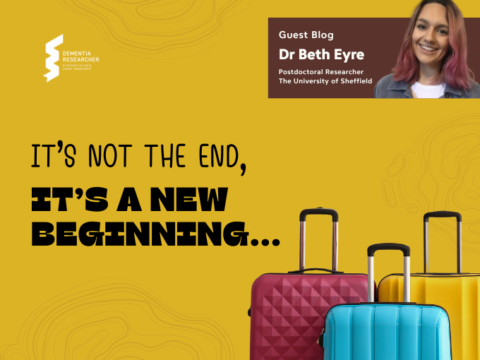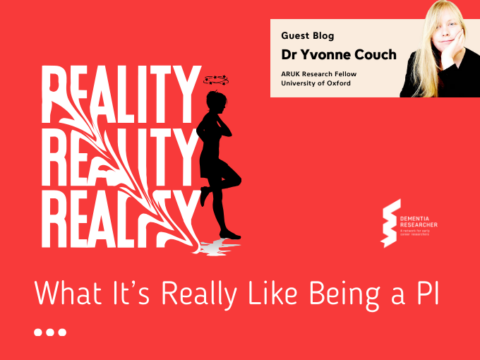
As a mature student coming into the world of academia I have brought with me a need for security. I need to pay my mortgage, make regular pension contributions and keep my children in the way they have become accustomed. Applying for an NIHR Doctoral Research Fellowship was a wonderful way of providing that stability. The scheme allowed me to transition from my NHS role into a university contract that matched my pay grade, provided pension and leave entitlements. This seemed like a wonderful culture of supporting clinician researchers.
Unfortunately it seems rather more tricky now I am at the other end of that PhD. Over the course of my studies I learnt that the majority of individuals do not fully finish their PhD when their funding finishes. The culture is to make good / full use of that continued research status. The limbo period between finishing your registration as a PhD student (the paid bit) and HAVING to hand in (often a year or two later) is often unpaid. Then there is of course the wait for the viva, and the edits and the final approval. In general you cannot apply for further funding until you have done all that.
I understand that there is a developing awareness of this issue. Indeed there are more bridging grants and fellowships available. Other countries have developed 3+1 funding models for PhD- providing that extra flexibility. Yet, there remain huge gaps. Only recently have I spoken to numerous early career researchers who have stated they were planning to change career if they were not successful in getting the grants they were applying for because they couldn’t progress with the remainder of their lives whilst being funded by “soft” money.
I have also learnt there is an expectation that you cannot be a fully rounded researcher/person unless you do your post-doctoral position somewhere else. At another institution. Away from the one you chose that was close to your children and family and home you pay a mortgage on. And away from the researchers that invested all that time in you as a PhD student.
This all seems rather strange to me. Why would you invest years of training, supervision and education in your PhD students just to see them walk away to another institution? Or be lost to the system? It seems to me that this is the perfect way to shoot yourself in the foot. In other industries one would grow an employee to keep them, so they can contribute to your business. In the NHS you would invest in an individual’s professional development in order to improve the care given to the patients you are working with. It seems to me that research and academia could benefit from a culture shift. Particularly in the area of clinically relevant research.
Having clinical experience appears vital to a clinically relevant research career. But having that experience often means coming to research as a more mature student. As a mature student you also have experience of working in other organisations often multiple. So, first of all, there seems less of a necessity to change institutions for a post-doc position or experience. Now secondly these are individuals who just cannot live off soft money/for free. Surely excluding a large proportion of the potential workforce based on this means the best candidates (brains) for a research career may be excluded. This is where an actual career pathway requires stepping stones between grants, or perhaps a more aligned employment structure whereby the NHS role includes a part time research role or the research role includes a part time NHS role. I have spied a few roles like this in medicine. But none in allied health.
No wonder the research in care and allied health is lagging behind. I was following a recent discussion on care research in dementia. One of the issues that arose was a lack of research in this area due to a lack of support for the right individuals to do this research. This is exactly what I am describing- without supporting the right people, in the right way, little progress will be made. We cannot afford to exclude people based on their inability to financially maintain themselves between grants. We need to find a way to include them to ensure the care research is addressed and we are able to provide the right type of much needed services to people with dementia.
In short academic culture needs to change to meet a changing need for clinically relevant research done by researchers who understand these needs and can have the best impact.
Author
Anna Volkmer is a Speech and Language Therapist and NIHR Doctoral Research Fellow working in Language and Cognition, Department of Psychology and Language Sciences, University College London. Anna is researching Speech and language therapy interventions in language led dementia and was once voted scariest speech and language therapist (even her children agree).

 Print This Post
Print This Post





Totally agree, I am in a similar position, not as AHP but as a clinical scientist. I think that while careers and contracts for research active NMAHPs, HCS etc remain so different between NHS and academia it will never be easy to transition between the two or to have the ideal clinical-academic career balance. I’m giving it a go though! I gave up my permanent NHS post to do my doctoral fellowship through the university, which finished in September. Currently I have a 2 day post back in the NHS for 5 years and a 2 day post-doc contract until November. My post doc salary is a lot lower than clinical but currently boosted up to to clinical level until September by the university 1 year redundancy scheme that applied after my PhD fellowship contract ended. Hoping to get some funding via the NEE/NIHR bridging scheme next for academic year if I can get more NHS hours.
Good luck with your plans!